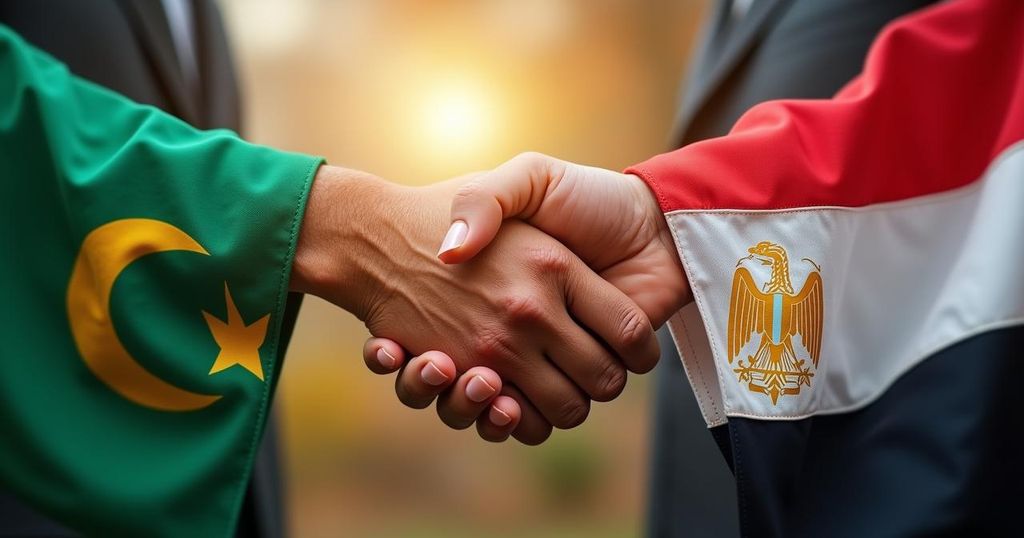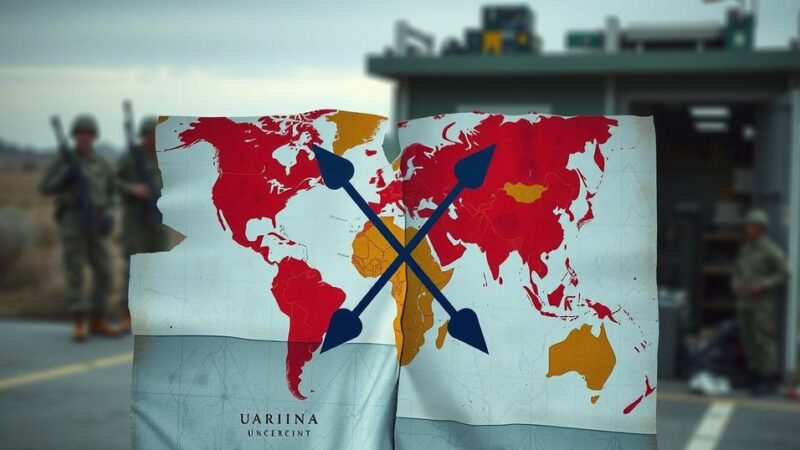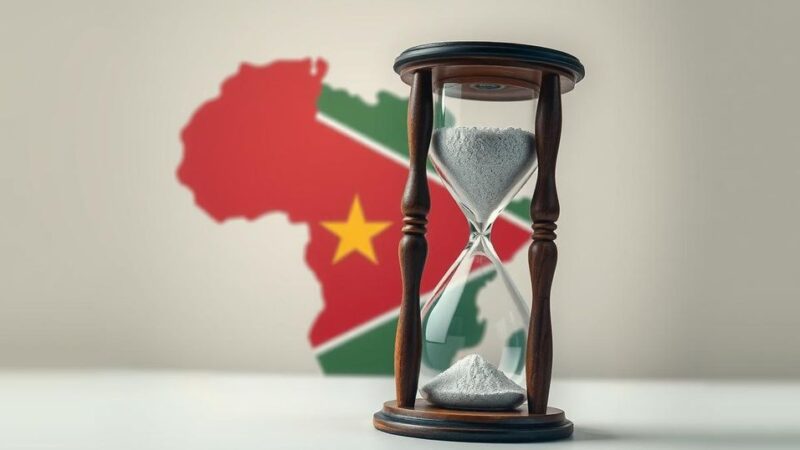Eritrea, Egypt, and Somalia have formed an alliance against Ethiopia during a summit in Asmara, driven by longstanding grievances. The meeting focused on strengthening Somali state institutions to combat internal challenges and terrorism. Analysts warn that these developments may lead to heightened tensions and potential conflict in the Horn of Africa as Ethiopia pursues access to a seaport and navigates complex regional dynamics.
In a notable summit in Asmara, the capital of Eritrea, the leaders of Eritrea, Egypt, and Somalia convened to strengthen their collaboration against Ethiopia, with which they maintain tense relations. The final statement from the summit emphasized “respect for the sovereignty… and territorial integrity of the countries in the region,” which some analysts interpret as a critique of Ethiopia’s aspirations for direct access to a seaport. Recent diplomatic strains have catalyzed Somalia’s alignment with Egypt and Eritrea, both of which have longstanding grievances against Ethiopia. Analysts express concern that this escalating tension might lead to conflict. “This is an axis against [Ethiopian capital] Addis Ababa,” stated Hassan Khannenje, the director of the Horn International Institute for Strategic Studies, during an interview on BBC’s Focus on Africa. He added that there seems to be a unification of animosity aimed at increasing pressure on Addis Ababa. A photograph following the summit depicted President Isaias Afwerki of Eritrea with Egyptian President Abdul Fattah al-Sisi and Somalia’s President Hassan Sheikh Mohamud, both of whom emphasized the need to bolster Somalia’s state institutions to tackle various challenges, including terrorism. This meeting marked Sisi’s first visit to Asmara, while the Somali president has made three visits this year. Ethiopia has historically backed the Somali government in its struggle against al-Shabaab, a militant faction. However, relations soured after Ethiopia engaged in a preliminary agreement with Somaliland concerning a section of the coastline, which Somalia claims as part of its territory. Moreover, the relationship between Ethiopia and Egypt has been fraught for over a decade, primarily stemming from Ethiopia’s construction of a significant hydroelectric dam on the Nile River, which Egypt fears may jeopardize its water supply. Recently, an Egyptian vessel delivered a substantial shipment of military supplies to Somalia, indicative of Egypt’s bolstered military support for the country. In 2018, it was anticipated that the long-standing hostilities between Ethiopia and Eritrea were resolved with the signing of a peace declaration by Ethiopian Prime Minister Abiy Ahmed. This accord earned him the Nobel Peace Prize the following year. However, after the civil war in Ethiopia’s northern Tigray region, relations deteriorated once again, particularly following Abiy’s assertion last year of Ethiopia’s desire for access to a Red Sea port.
The geopolitical landscape of the Horn of Africa is complex, significantly influenced by historical conflicts and territorial disputes. The nations of Eritrea, Egypt, and Somalia have formed an alliance against Ethiopia, which has sought access to a coastline to boost its economic and strategic standing. Ethiopia’s relationships with Somalia and Eritrea have been traditionally adversarial, especially concerning territorial claims and water rights linked to the Nile River. This recent summit underscores the fragile and shifting alliances that characterize the region, primarily driven by unresolved conflicts and concerns over national interests. Concerns about potential conflicts arising from this alliance illustrate the delicate nature of regional stability. Historically, Ethiopia played a supportive role for the Somali government amidst internal challenges, including the fight against al-Shabaab militants. However, recent shifts in allegiance, particularly stemming from Somalia’s discontent over Ethiopia’s engagement with Somaliland, have altered this dynamic. Additionally, rising military support from Egypt to Somalia signifies the intensifying cooperation among these nations. Examining the evolving relations in the Horn of Africa reveals the intricate balance of power and the potential for renewed hostilities.
In conclusion, the recent summit among Eritrea, Egypt, and Somalia highlights a concerted effort against Ethiopia, driven by mutual grievances and territorial ambitions. The summation of various points, including statements made by regional leaders and the burgeoning military cooperation between these nations, indicates a significant shift in alliances within the African geopolitical landscape. The fears of conflict stemming from these developments point to the necessity of diplomatic engagement to foster stability in the region.
Original Source: www.bbc.co.uk






